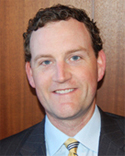© 2013 The Texas Lawbook.
By Mark Curriden
Senior Writer for The Texas Lawbook
(June 2) – Two high-ranking lawyers with the U.S. Securities and Exchange Commission’s Fort Worth Regional Office who played critical roles in some of the government’s biggest and most high-profile cases have left the federal agency for the private sector.
Lawyers who work closely with SEC officials say they expect more senior level attorneys in the office to depart later this summer.

Toby Galloway, a 12-year SEC enforcement veteran and chief trial counsel who played key roles in cases against Mark Cuban, Dynegy and Life Partners, left the agency Friday to join Fort Worth-based Kelly Hart & Hallman, which is creating a white-collar criminal and securities enforcement practice.
Michael King, an assistant director of enforcement who was leading the SEC’s investigation into allegations that Wal-Mart officials bribed Mexican officials and the inquiry into whether senior officials at Chesapeake Energy committed fraud and misled investors, has left the SEC after nearly a decade to become head of the corporate compliance group in the corporate legal department at Gerson Lehman Group in Austin, the nation’s largest expert network firm.

The two departures, which were unrelated to each other and unexpected, have the SEC scrambling to fill the two critical leadership positions at a time when the agency’s Fort Worth office is handling several high-profile matters.
“Toby and Michael are excellent lawyers and leaders and were involved in some of our most important matters for a long time,” says David Woodcock, who is the director of the SEC’s office in Fort Worth, which handles examinations and enforcement matters in Arkansas, Oklahoma, Kansas and Texas.
“Absolutely, the departures of Toby and Michael are a big loss for us and they will be missed,” says Woodcock. “But no cases will suffer. We have a great team of lawyers here, which means that when people such as Toby and Michael leave, it is an opportunity for others to move up.”
Woodcock declines to discuss any specific investigation or pending case, but he says that he will be naming replacements for Galloway and King soon.
In separate interviews, Galloway and King insist that their departures are not the result of any dissatisfaction with the SEC. Both say that their new employers offered opportunities that they could not resist.
King, who led the unit that focuses on violations of the Foreign Corrupt Practices Act, says his corporate in-house position at GLG, which matches clients with industry experts based on business needs, allows him to “have an unique opportunity to be an integral part of a growing global business.”
Galloway’s decision to join Fort Worth-based Kelly Hart bucks a decade-long trend of high-profile and experienced securities enforcement lawyers joining Dallas law firms instead of Fort Worth firms, even though the SEC’s regional office is in Fort Worth.
Both lawyers admit there were some “dark days” a few years ago when the Fort Worth Regional Office, which handles SEC examinations and enforcement matters in Arkansas, Oklahoma, Kansas and Texas, came under heavy criticism for its alleged mishandling of the Stanford Investments scandal in Houston.
“When Stanford and then the [Bernie] Madoff matters hit the SEC, it became a much less fun place to work,” says Galloway. “There have been highs and lows, but I think the office is now out of the ditch and is doing great work.”
Galloway and King agree that the SEC’s regional office in Fort Worth has regained respect and is now trusted with some of the most important and high-profile cases the federal agency is handling.
“Things are as good at the Fort Worth office as they have ever been,” says King.
King and Galloway attribute much of the improvement to the leadership of Woodcock, who took over the office in September 2011.
“David is very thoughtful person,” Galloway says. “He’s very interested in being proactive in identifying issues and predicting risks before they become a major problem.”
While additional manpower and resources are always needed, King says that the “one area that could really improve the operation” would be if the SEC had the ability to hire more industry experts who would work with the enforcement lawyers in tackling cases that have highly complex financial business structures.
“SEC lawyers are dealing with very well funded, sophisticated lawyers working for large corporations and have nearly unlimited budgets,” he says. “The SEC needs to be able to bring in experts who can provide specific industry insight and knowledge.”
King and Galloway predict the SEC’s Fort Worth office will become more aggressive in pursuing accounting fraud and insider trading cases and that hedge funds operating in Texas will increasingly come under the microscope. They say that an increasing number of cases will be initiated based on information from whistleblowers that come forward thanks to provisions in the Dodd-Frank financial regulatory reform law.
And they believe there will be an increase in cases focusing on the energy industry.
“In Texas, I think there will always be an additional focus on oil and gas matters, especially in cases where there’s been an overstatement of proof of reserves and offering fraud cases where an official has misrepresented how investment money would be used,” Galloway says.
© 2013 The Texas Lawbook. Content of The Texas Lawbook is controlled and protected by specific licensing agreements with our subscribers and under federal copyright laws. Any distribution of this content without the consent of The Texas Lawbook is prohibited.
If you see any inaccuracy in any article in The Texas Lawbook, please contact us. Our goal is content that is 100% true and accurate. Thank you.
